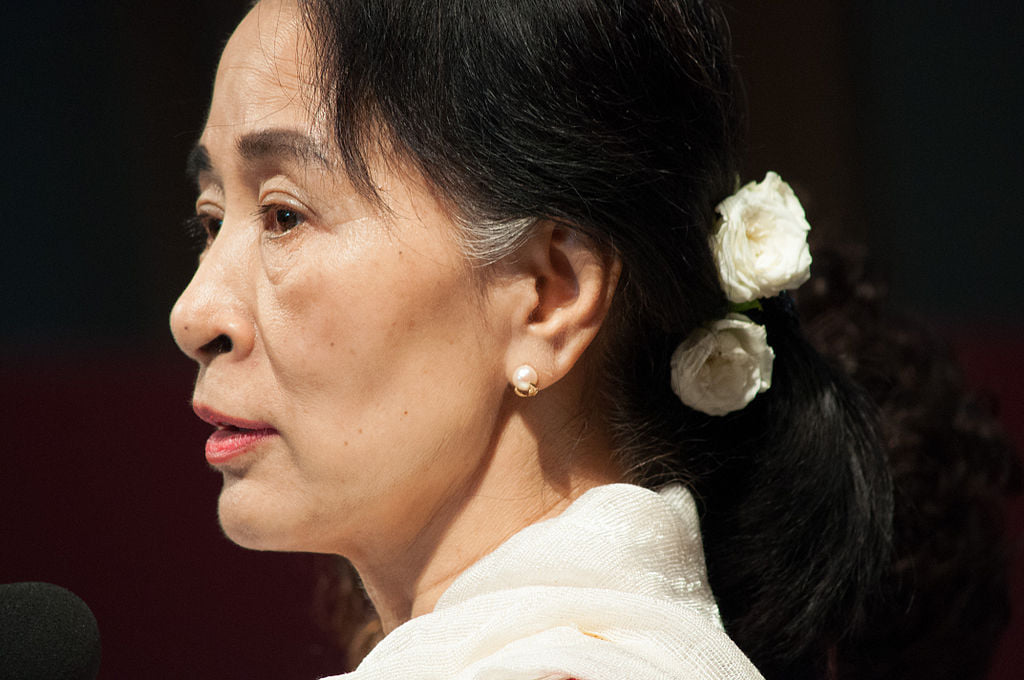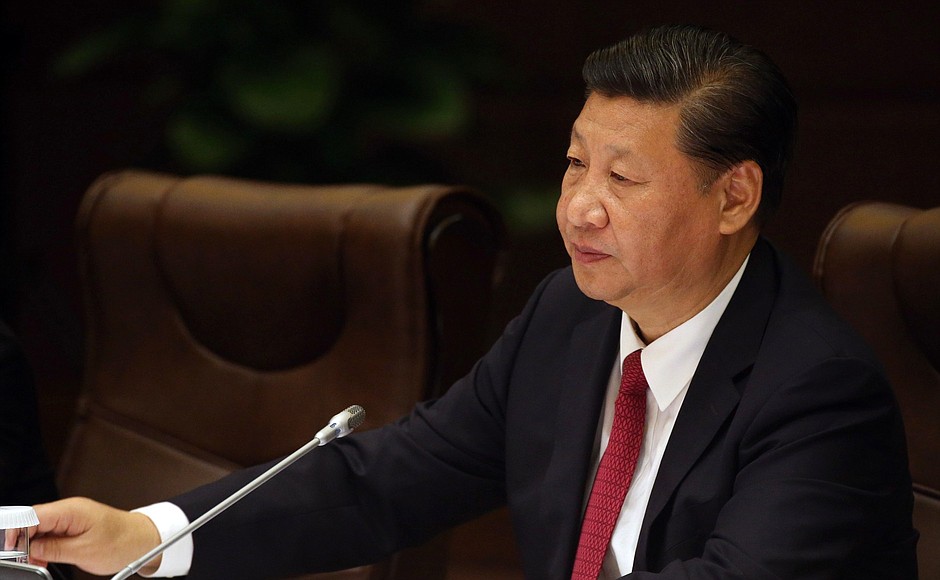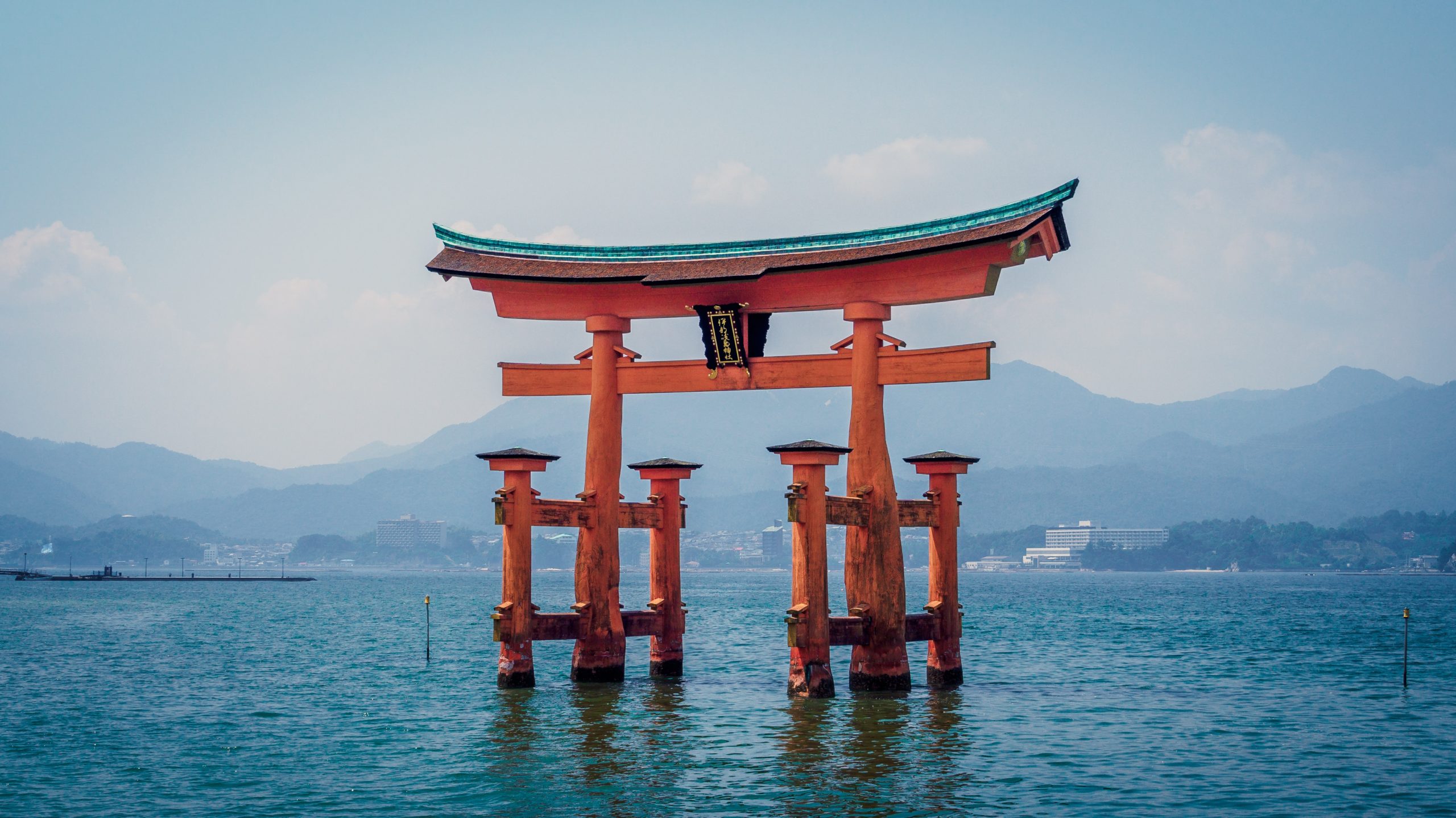Aung San Suu Kyi was detained and we are witnessing a military coup in Myanmar.
On this occasion, Andrej Matišák has polled several experts on the topic and asked them two questions:
- Why do you think the military did this?
- What does it mean for Myanmar, any chance that the situation could be reversed?
Answers:
Nicholas Farrelly, Head of School, Social Science, University of Tasmania
The military alleges widespread electoral fraud, but there is no evidence for this claim. They are worried, however, that the National League for Democracy government could further diminish the military’s power, and they may fear that their supreme role as constitutional guarantor is under pressure. Declaring a state of emergency and arresting the NLD leadership is a bold move, but they have apparently judged that it’s in their interests. For me, it is a surprising change in their strategic direction, and it is hard to know if they have thought through all of the implications.
Tens of millions of Myanmar voters will now feel disenfranchised, with all manner of unpredictable consequences. The military may wilt under pressure internally and externally, but it has proved, in the past, an incredibly resilient organization. Once they decided to move so abruptly against the NLD, they have taken what is almost the path of no return. A wildcard is a response from ethnic armies in the borderlands, many of whom have also committed to the democratic process. The Myanmar army is not the only group with lots of guns.
Anthony Ware, Associate Professor, International and Community Development, Deakin University
How surprised should we be?
I was very surprised – I didn’t think they would go this far, though the military has been ‘rattling the saber’ and threatening for weeks. I am hugely disappointed, this is a terrible setback for the nation
BUT it is definitely logical in the military’s way of thinking…
The Myanmar military was formed during World War II by a small group of ‘patriots’ seeking independence from Britain first and foremost. The military has always seen themselves as protectors of the nation ever since, especially of ‘national unity’ and ‘solidarity’.
They alleged massive fraud during November’s general election, alleging huge discrepancies on voter lists – very much as US President Trump did – Myanmar’s Union Election Commission did not settle their concerns the way they wanted.
They requested the government postpone lower-house and upper-house parliament sessions, and the government refused.
They say they have acted against attempts to take over the sovereignty of the Union
They have resolved this in their way according to the law – the state of emergency is declared in accordance with article 417 of the 2008 constitution – ostensibly to give them time to perform scrutiny of the voter lists and to take action, as the government and UEC did not.
Any chance it could be reversed?
No. The military is a stickler for doing things ‘by the book’ = they always have had a law (however obscure) for every move they have made. And they have never bowed to public pressure, really. This will last the full 12 months.
What does a 12-month state of emergency mean, and will it be 12 months?
It allows them to suspend parts of the constitution, parliament, according to their decree. But they do this under constitutional power, as per article 417!
The claim they will focus on ‘scrutiny’ of the voter lists – there could be a danger this will become a form of gerrymandering, or changing the election rules to ensure they have a better chance of winning or retain more power.
In 1 year, I suspect they WILL hold a new election, with different voter lists and rules – or come up with an excuse to delay e.g. need to re-draft the constitution.
Their idea of the Rule of Law is all-important to them.
There some important issues:
Ethnic minorities/peace process are likely to suffer badly over the next year. The minorities very largely voted for the NLD, rejecting the military party. It is likely the military will move against the ethnic armed groups aggressively, pursuing an option to win the conflicts, over negotiating real compromise outcomes.
The Rohingya repatriation will be put on ice, and there is likely to be a further crackdown against those who remain. Rakhine state in Myanmar is likely to be the site of renewed violence.
International ramifications – how should the intl community respond?
Sanctions? … I strongly argue against these. The military is already close to China, and a powerful China ally means sanctions will have little impact.
Rather, they need to see/feel that this is unacceptable to the international community, in ways in which we don’t just go away. We need MORE engagement in Myanmar, not less – but ONLY principled engagement à scrutiny – it is important Westerners and Europeans, etc. are in the country, as witnesses, to keep putting pressure on the regime, and to hold them to account re the 1 year (only) intervention.
By principled engagement, I particularly mean engagement around things like peace negotiations with ethnic minorities, groups, and programs to support human rights, aid, and development to the poorest and most disenfranchised, etc. We should be stepping these things up, as well as international pressure, and we should be vocally and openly promoting the voices of local dissidents who speak up on this …
Jason Abbott, Director, Center for Asian Democracy, Professor, Political Science, University of Louisville
In November’s election Aung San Suu Kyi and the NLD, won 83 percent of the parliamentary seats up for election, while the pro-military Union Solidarity and Development Party (USDP), won 6.9 percent, down on their poor share in 2015.
The army and the USDP claim that there was widespread electoral fraud in those elections and have used that as justification for the coup that occurred today.
While there were some problems in the election, they were mainly in areas of the country in which ethnic conflict has continued and independent assessments of the election reject the claim that fraud was on a scale that would have affected the result.
However, under the 2011 Constitution, the military holds 25% of seats in both houses as ‘reserved seats’. This ensures that it is all but impossible for the government to change the constitution since 75% of votes in both houses are needed.
Tensions between the government and the military have been ongoing since the reform era began in 2011. Despite winning elections in both 2015 and 2020 the military has prevented further democratization of the country because the constitution guarantees the military a quarter of all seats in parliament and control of three of the most powerful cabinet positions (The Ministry of Defence; The Ministry of Border Affairs and the Ministry of Home Affairs).
While the reserved seats in parliament ensure that the constitution cannot be revised the decline in the number of seats won by the USDP has made the case for constitutional reform stronger and it is likely that senior Army leaders have concluded that the 2008 constitution no longer provides sufficient protection for the military.
What does it mean for Myanmar, any chance that the situation could be reversed?
Well, it’s hard to be sure since most of us thought a coup unlikely after the economic and political liberalization of the country in the past 10 years. However, the military may have been encouraged by trends in the region. In neighboring Thailand, the military has ruled the country since a successful coup in 2014 while in recent month’s China has cracked down in Hong Kong. Coupled with the worldwide pandemic and domestic political turmoil in the United States the Myanmar military may have decided that this was an opportune moment to seize control.
Marco Bünte, Professor of Asian Politics and Society, Institute of Political Science, Friedrich–Alexander University Erlangen–Nürnberg
Aung San Suu Kyi was detained in order to prevent her from mobilizing her supporters. Her popularity is still immense and she could certainly mobilize her followers to go against the military coup.
Why did the military intervene?
On the surface, it has reacted to irregularities in the elections. Since November, it has tried to convince the Election Commission that there were a huge number of voter irregularities in the 2020 elections. The military tried to convince the government to dissolve the Election Commission and to call for fresh elections. It was pushed by parties close to the military to intervene since they were nearly wiped out in the 2020 elections and the NLD landslide. The government did not give in and this is why the military felt to “have the duty” to intervene and call for a one year state of emergency to reorganize the elections. A number of things are truly wrong in the military’s argumentation. The military felt to have the right to intervene according to article 417 of the constitution. This is not right, since this article gives the president(who has been detained) the right to call for a state of emergency. It is a simple coup.
On another level, it is also the manifestation of the fight between two leaders, who do not see the other as a legitimate leader. It is a breakdown of Civil-Military Relations in a Tutelary Regime. Commander in Chief Min Aung Hlaing felt that the move to make Aung San Suu Kyi State Counsellor was unconstitutional and therefore he dealt with the president only. Aung San Suu Kyi on her side felt that Min Aung Hlaing’s leadership was illegitimate since he is not elected. The fight between these two leaders manifested itself in a lack of cooperation. Apparently, the two have not met since 2018 (although they are both parts of the same government). Aung San Suu Kyi did not Convene the National Security Council, as envisaged by the military-drafted constitution. She appointed her security advisers instead. You see that there is already a growing conflict between both sides. And Min Aung Hlaing’s tenure as Commander in Chief would have ended in 2020, giving Aung San Suu Kyi the opportunity to move against the army. You see that the conflict started earlier and might have ended in the loss of power of the dominant position of the military.
It is the end of a marriage of inconvenience for both and signals a further year of military dictatorship for Myanmar.
John Dale, Associate Professor of Sociology, George Mason University
Aung San Suu Kyi has been venerated around the world as a populist leader – not only of Myanmar but of the struggle for World Peace. But today, human rights organizations – and even fellow Nobel Peace Prize winners have (justly) demonized her – claiming she’s complicit in genocide – and have called for her to return her Nobel Peace Prize.
Now for my argument – briefly stated: De-democratization is certainly occurring in Myanmar right now. But it is not taking the form of populist-fueled authoritarianization. Rather, Myanmar, following a brief period of recent democratization, is undergoing de-democratization within a structure of governance that is fundamentally constrained by two key historical sources of authoritarian institutionalization: (1) its constitutional framework; and (2) the military, which, since 1958, became the dominant social institution in Myanmar.
Observers have been paying so much attention to the populist fueled the rise of Aung San Suu Kyi that when she disappointed people with her callous response to the Rohingya genocide, they began focusing on her as a personalist dictator towing the military’s line. But the military thought they would be elected in the recent democratic elections and be able to seat their own party’s president. When that failed – and today ASSK’s NLD party was supposed to seat their own president – the military intervened (much like they did when she won in a similar landslide in 1990). Now the military has more power than ever before – largely due to one other source of authoritarianism that has been on the rise since 2013, when they opened up their state monopoly of the internet, allowing Ooredoo (a Qatar-based company) to build a massive internet infrastructure to develop “smart city” governance in Naypyitaw, Yangon, and Mandalay. That new source of authoritarianism I call “digital authoritarianism,” much in line with what the U.S. Senate Foreign Relations Committee last July accused China of spearheading through its efforts at the United Nations (International Telecommunications Union (ITU) to create a new global internet protocol (replacing the US’ long hegemonic IP-TCP protocol) that China claims would better serve 5G and 6G technologies (which it dominates) and sustain the kind of state surveillance its own internet infrastructure enables.
Of course, recent research describes the (US) Silicon Valley model as “surveillance capitalism” or “platform capitalism” – and, as tech workers within US Big Tech firms increasingly reveal to the public the abusive labor and human rights practices taking place within these firms and through their partnerships with governments around the world, it is difficult to not see competing digital authoritarian models shaping up.
So, I don’t see the Myanmar military backing down from this, and I don’t expect China to intervene, and I don’t think the US has the moral power (or economic power relative to China) after the last four years of failed diplomacy and the aftermath of our own recent elections to influence the situation. The military took a play right from Trump’s playbook when they falsely denounced the election results as fraudulent. The only difference is that Myanmar’s military coup was successful and Trump’s was not. (Perhaps I am being a bit hyperbolic in that last statement, but not much).
Tamas Wells, Research Fellow, School of Social and Political Science, University of Melbourne
There have been escalating tensions between Aung San Suu Kyi’s government and the military, but the coup has been a surprise in some respects.
There have been many points of tension over the last 7 or 8 years but military elites have to some degree respected electoral outcomes – even the significant NLD victory of 2015.
The November 2020 election result – with another large victory for the NLD – was not particularly surprising, given their domestic popularity, especially amongst the Bamar majority ethnic group. But perhaps military elites were expecting the military aligned parties to fare better than they did.
In any case, it will be difficult if not impossible for the military to go back to the kind of regime they had in the 2000s.
Myanmar was a very different place during the military regime of the 2000s. At that time, the media was completely controlled, there was no social media, limited internet access, the economy was incredibly restricted, and there was a very small middle class. Those conditions made it much easier for a military government to hold control.
Now there is a much larger middle class in the cities who are connected to social media and have expectations of ongoing improvements in government services and a growing economy. During their long period of rule up until 2011, military elites proved that they were pretty inept at both social policy and economic management.
So it is difficult to imagine how the military would actually govern now, except in a short-term way.
They will also face significant pressure from business elites who have been making a lot of money in recent years.
In this sense, it is difficult to see how this coup will pan out. Whether it will be a long term stalemate, or whether the military elites will actually hand back power.
Kristína Kironská, Senior Researcher at Palacky University in Olomouc and Central European Institute of Asian Studies
In the last few weeks there were tensions in Myanmar and threats of a coup were made– the military demanded an inquiry into the election results from the November 2020 election for alleged fraud. It is true that the elections were very problematic – due to disenfranchisement of a large number of people, namely the Rohingya, and canceling voting altogether in many conflict areas – but election observers, both domestic and those few international that managed to make it to Myanmar (COVID restrictions), deemed the elections trustworthy and basically free and fair.
The Election Commission and Aung San Suu Kyi’s government did not meet the military in their demands (recounting the votes and postponing the first session of the new parliament, which was to convene today, 1 February 2021) and the situation escalated into what we have seen today. The military was pushed into the corner (in their view) and as a result, showcased its power and determination. Or was it the personal aspiration of the Senior General who was supposed to retire soon but did not want to leave his position of power? That’s how little we know about the Tatmadaw. One thing we know, it has already done several not-well-though-through (stupid) steps in the past.
Reversal of the situation? Very unlikely, not the Tatmandaw’s style. I worry very much about the next few days and the people of Myanmar. The former de facto leader, now under arrest (again!), called on the people to boycott the coup. Most Western media forgot to add that Aung San Suu Kyi said: “boycott without using violence”. For now, Myanmar activists have decided not to go out into the streets for the first three days – to calm the situation down at least a bit.







